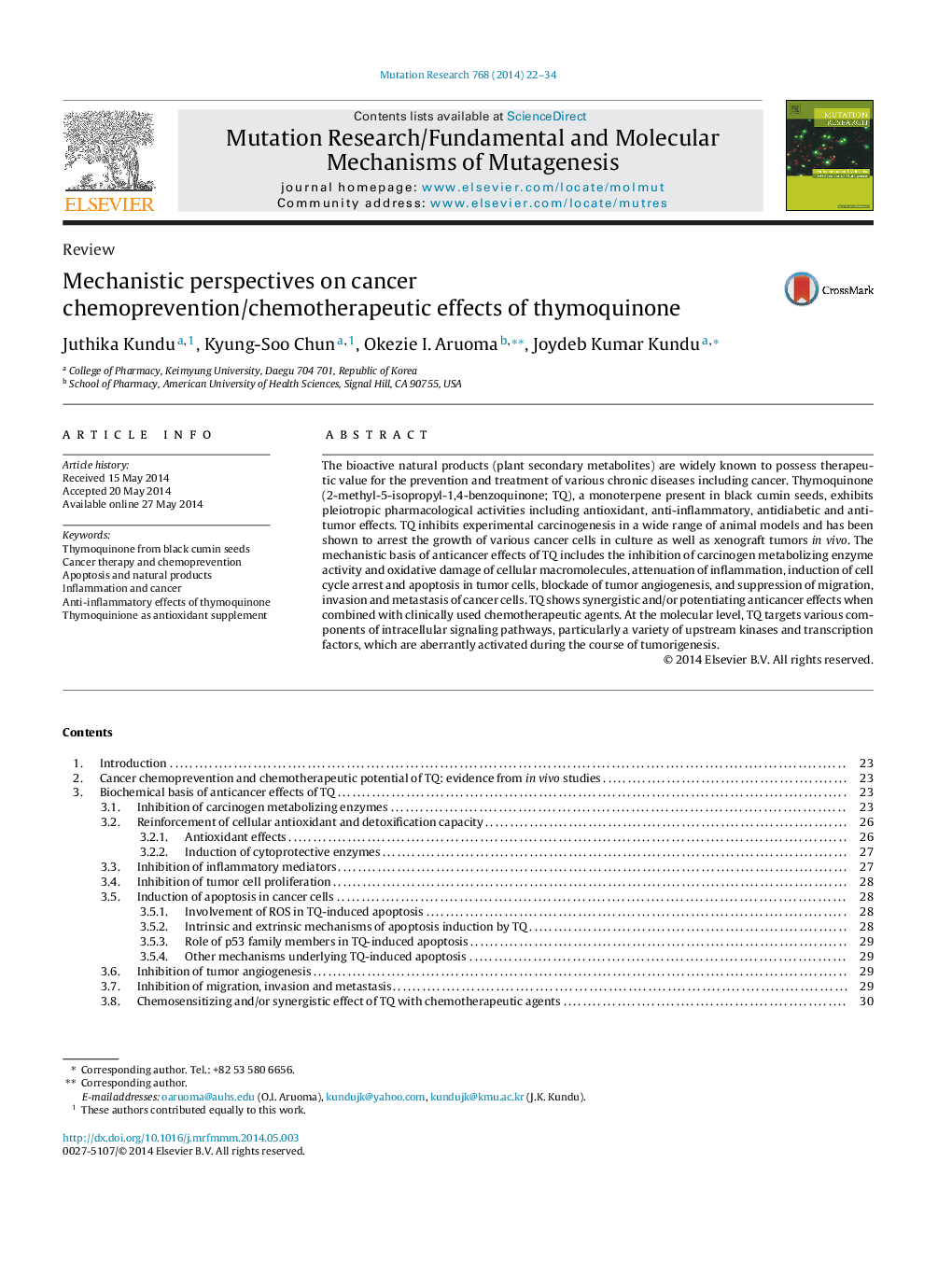| Article ID | Journal | Published Year | Pages | File Type |
|---|---|---|---|---|
| 2146292 | Mutation Research/Fundamental and Molecular Mechanisms of Mutagenesis | 2014 | 13 Pages |
The bioactive natural products (plant secondary metabolites) are widely known to possess therapeutic value for the prevention and treatment of various chronic diseases including cancer. Thymoquinone (2-methyl-5-isopropyl-1,4-benzoquinone; TQ), a monoterpene present in black cumin seeds, exhibits pleiotropic pharmacological activities including antioxidant, anti-inflammatory, antidiabetic and antitumor effects. TQ inhibits experimental carcinogenesis in a wide range of animal models and has been shown to arrest the growth of various cancer cells in culture as well as xenograft tumors in vivo. The mechanistic basis of anticancer effects of TQ includes the inhibition of carcinogen metabolizing enzyme activity and oxidative damage of cellular macromolecules, attenuation of inflammation, induction of cell cycle arrest and apoptosis in tumor cells, blockade of tumor angiogenesis, and suppression of migration, invasion and metastasis of cancer cells. TQ shows synergistic and/or potentiating anticancer effects when combined with clinically used chemotherapeutic agents. At the molecular level, TQ targets various components of intracellular signaling pathways, particularly a variety of upstream kinases and transcription factors, which are aberrantly activated during the course of tumorigenesis.
